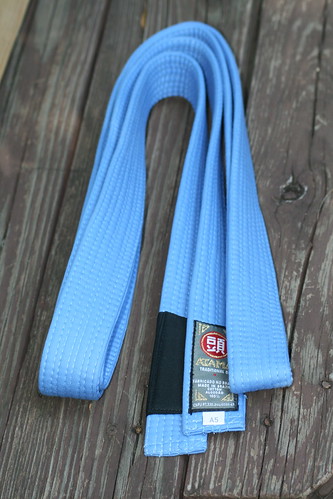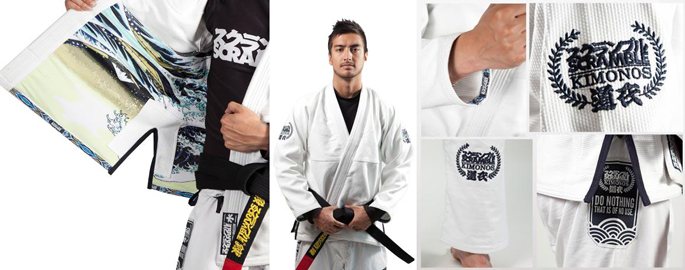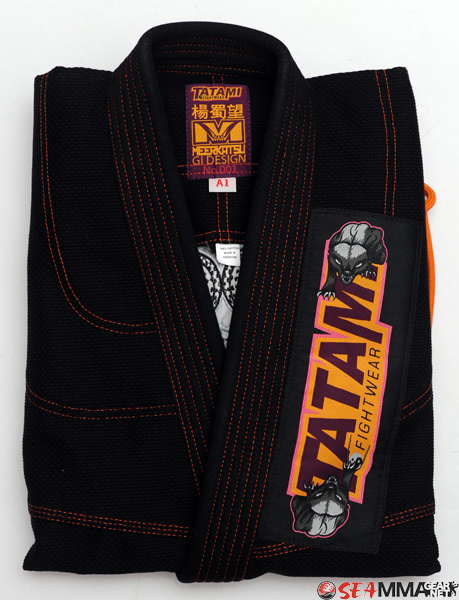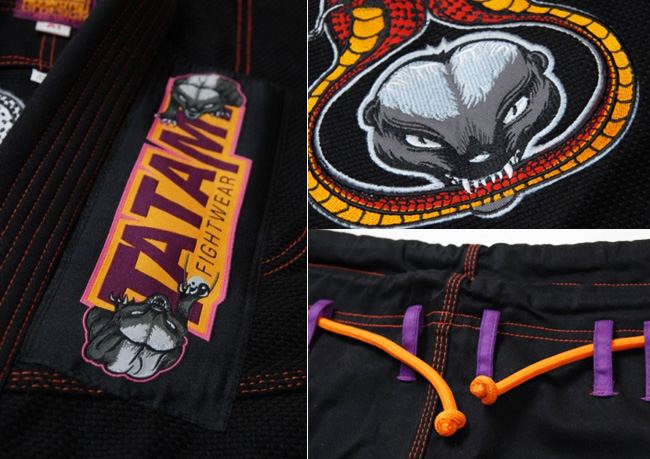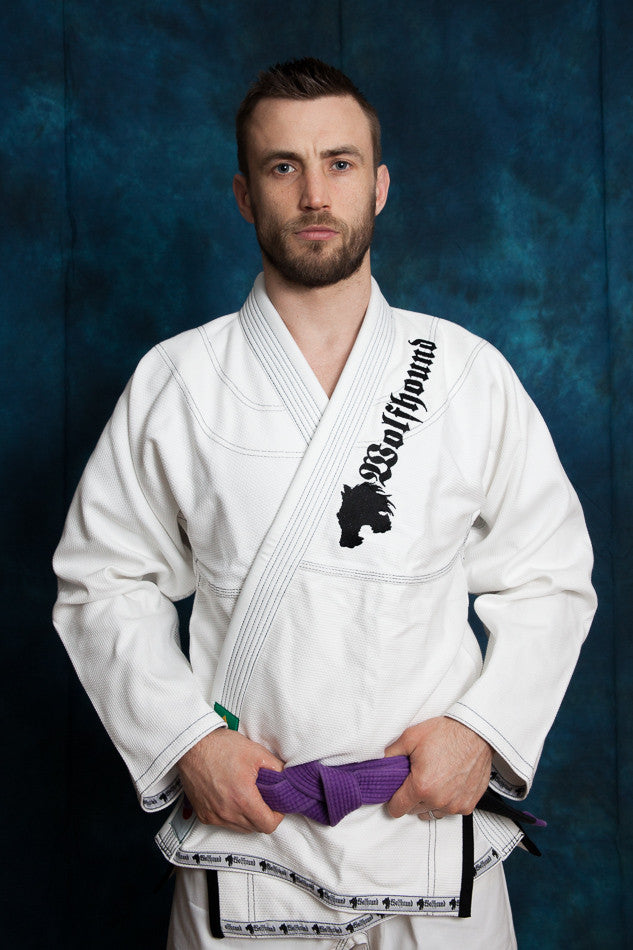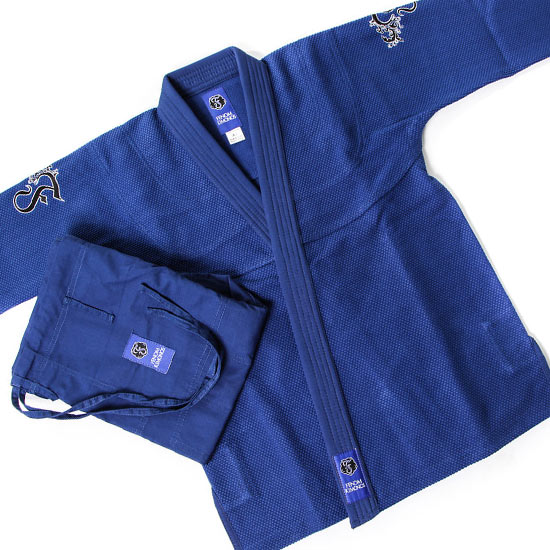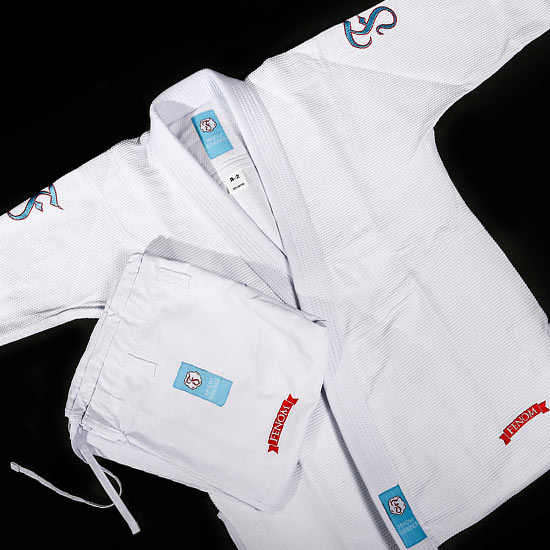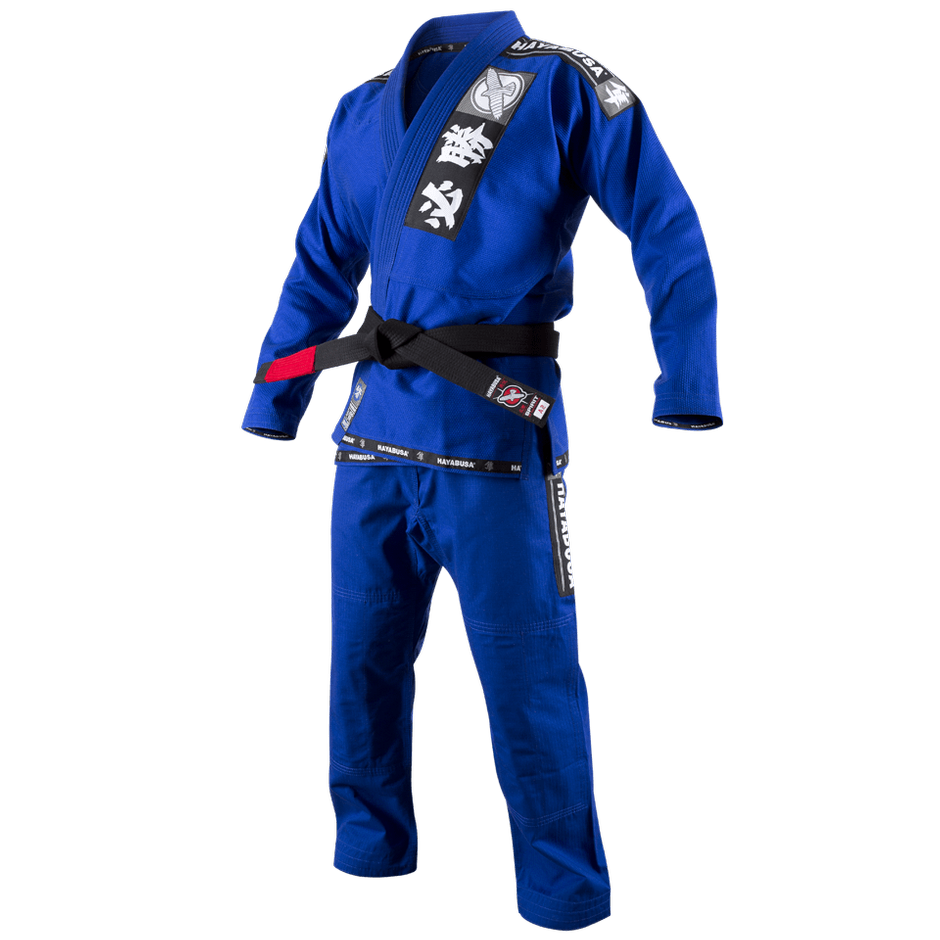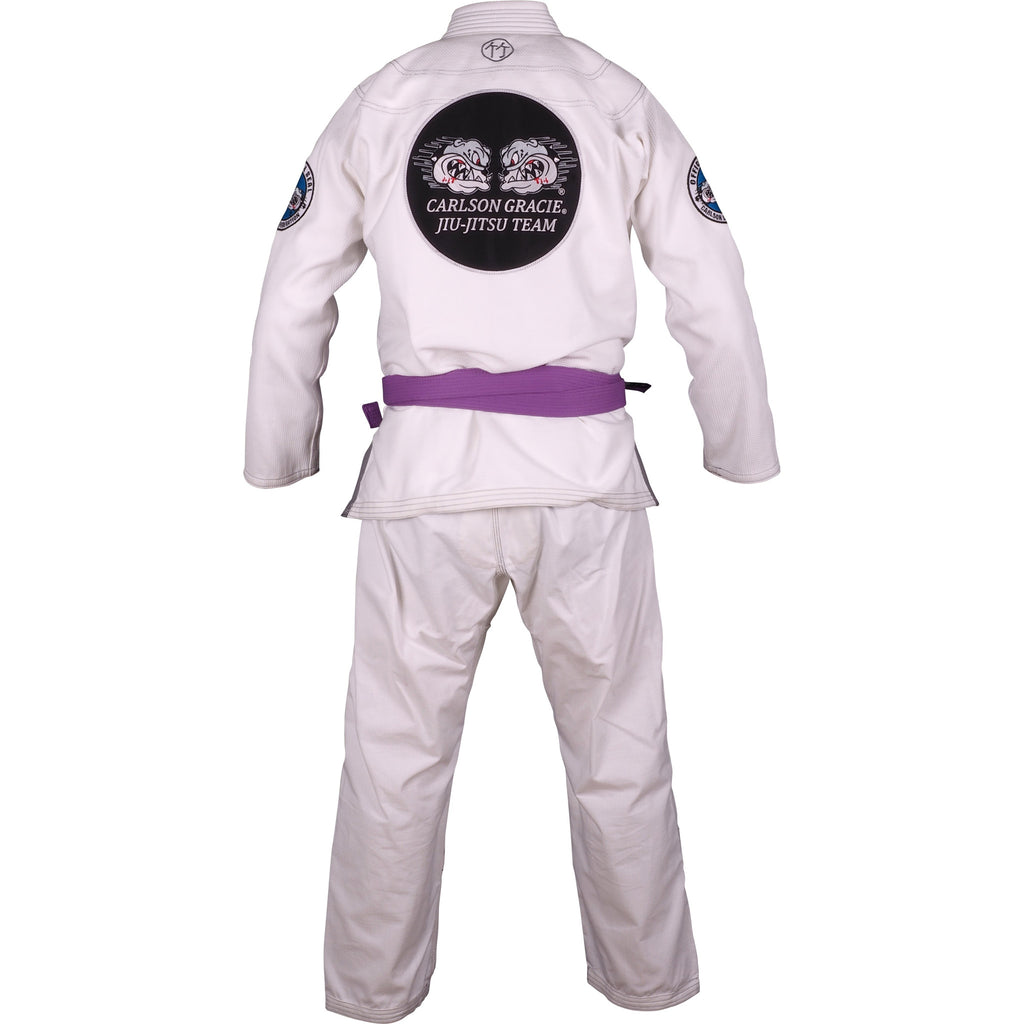I always rock the black gis, and I am nerdy enough to want a Akatsuki gi-http://www.modernflowbrand.com/product/akatsu-gi
I don't think I could do the Dragon Ball one though. I never saw Dragon Ball, and that one is so flashy that you better be good if you're going to wear such a troll gi xD
My Gis currently are;
Atama Black Mundial;
https://www.atamausa.com/Atama-Black-Mundial-Model-9-Black-p/ki.jj.0009.pr.htm
Really awesome gi. It has an old school cut with the lapels going very very deep. the left lapel edge almost hits my back when I tuck it really far in. So if you're rolling and the gi gets undone by the belt, it can look funny.
The collar is insanely thick, but the pants are super thin. I really like them, but they are two short for me. A common problem with being a long limbed freak like me.
Scramble Wave;
The wave is one of my favorite works of art. Obviously I needed this. I love Scrambles style. They are like the Superdry (mix of British and Japanese) of Grappling appeal. For an A4 I felt it was on the smaller side. Jacket has not been as durable as other brands. Unfortunately, like my other white gis, the blood is hard to get off.
Tatami;
Estillio V1, Estillio V2 and Estillio Honey Badger edition;
Love these. In my gym, more than anything, people have Tatami. Tatami is European which is a big cost saver compared to shipping from America or Asia. All non-EU products have a 25% extra added tax on top. If I buy a Gi for 200 dollars in the US, I pay 50 dollars just in tax. Not including shipping, customs and other fees. That really makes international purchases quite costly for us Europeans.
I'm trying to wear my Gis down. Not gotten a new gi for 5+ years. Having 4-5 in rotation makes them wear down very infrequently. Honey Badger and the Wave is almost done. Purple A5 Estillio is nearing its end as well. The Atama is a tank though. I also still got two of my very first gis- One from Breakpoint which I don't like (doesn't fit me at all) and a black Vulkan from 2010 that just won't die xD
I'd love to have a travel gi. The ultra thin gis that dry very very fast are perfect to bring with you when you travel. It's also very practical if you need to wash your gi every day or nearly every day and you don't have a washer.
Them problem with the travel gis is that they are often illegal in competition. Some people argue that they are harder to grip by the collar, but that hasn't been my experience! I like them a lot because you sweat less in them. I feel that the gis with the rashguard linnen are very hard to breathe in. But they do look uber cool.






